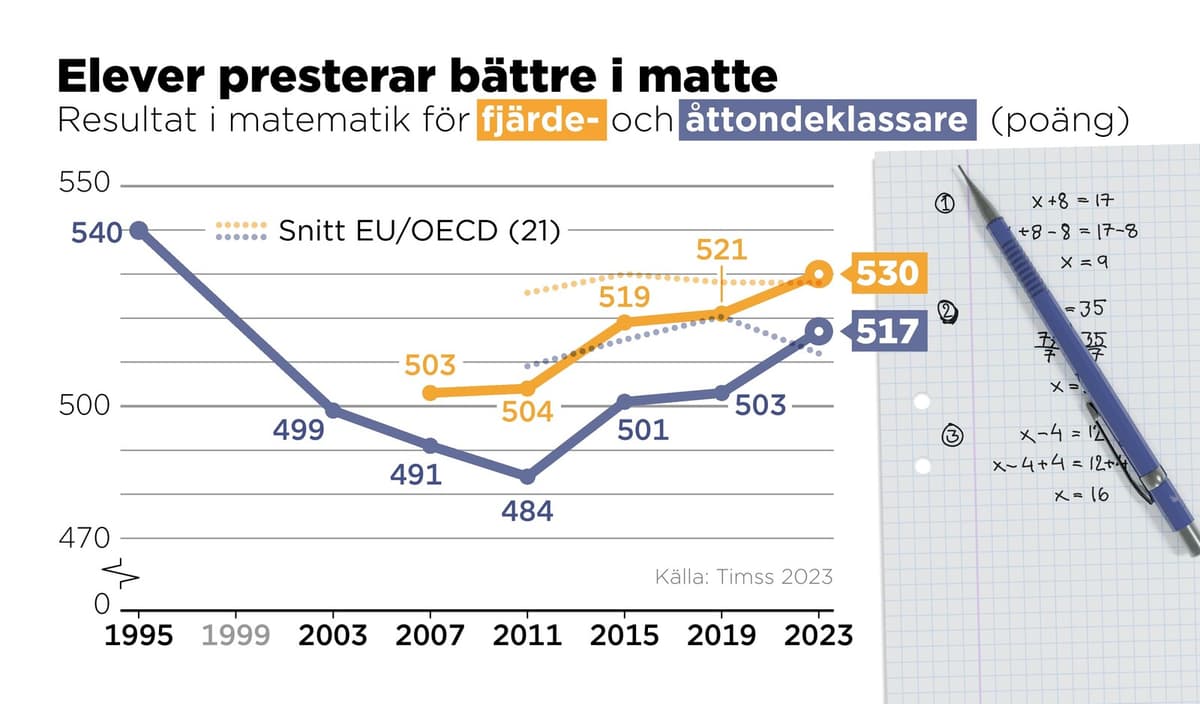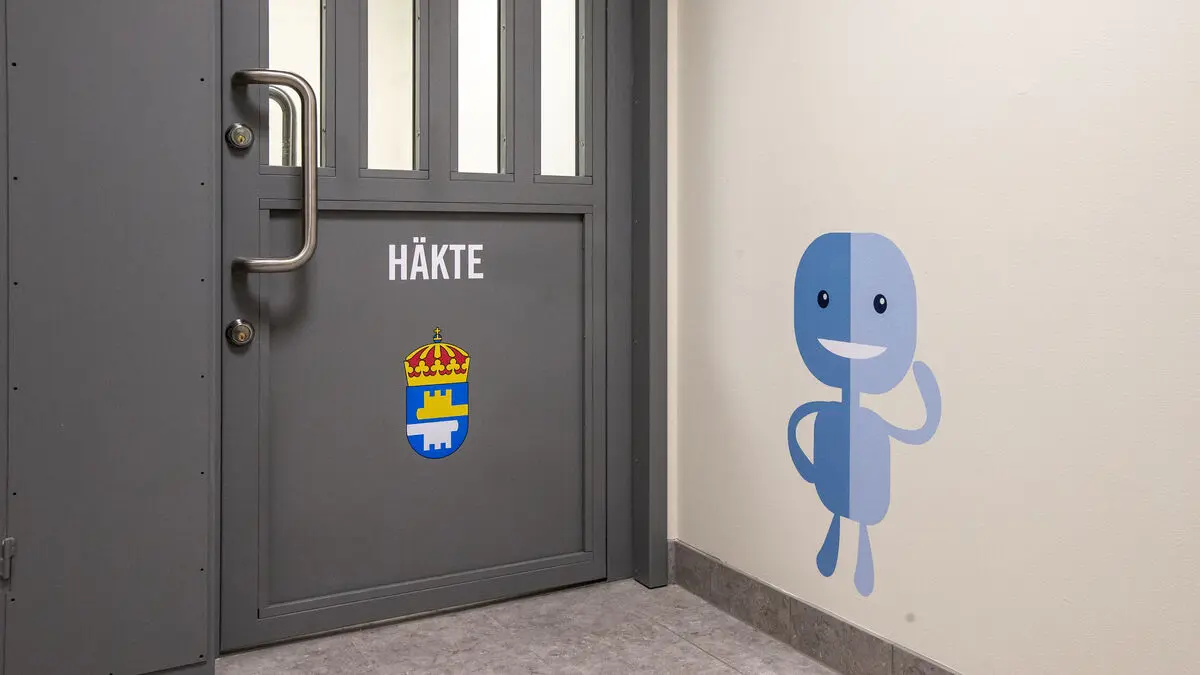Following a series of international measurements indicating that knowledge results are going in the wrong direction, Timss 2023 shows that both fourth-graders and eighth-graders perform significantly better in mathematics than in the 2019 measurement.
Eighth-graders have not had a better result throughout the 2000s, and fourth-graders, who have not been part of it for as long, achieve their highest score so far.
It's gratifying since Sweden has invested heavily in mathematics for a long time, says Anna Castberg, head of department at the Swedish National Agency for Education, to TT, referring to, among other things, teacher competence development.
Today's survey is a gratifying assessment for Sweden's teachers.
Eighth-graders are above the EU/OECD average, and fourth-graders are at the average, after having been below in the previous Timss. The Swedish eighth-graders are now among the top ten countries.
Singapore is again the best, followed by Taiwan and South Korea.
In science, the results for Swedish students remain unchanged compared to Timss 2019, and Sweden remains above the EU/OECD average.
Boys are pulling ahead
The mathematics results are surprising since mathematics is not a strong subject in Swedish schools. The Swedish National Agency for Education's statistics show that many of those who do not become eligible for upper secondary school have failed in mathematics. And in the latest Pisa measurement, mathematics results plummeted. Then, the pandemic was cited as a contributing factor.
Timss does not provide explanations for the Swedish mathematics improvement but shows an interesting detail: it is mainly the boys who have improved their results. Especially in fourth grade, but also in eighth grade, boys have significantly higher scores than girls.
It's an international trend, says Castberg.
The best are pulling ahead
Timss also shows that it is primarily the most skilled students in eighth grade who have improved their mathematics results.
Broken down by different knowledge levels, it can be seen that groups at high or advanced levels have grown, while groups at low or below low levels have not decreased to the same extent. Three out of ten eighth-graders are at low or below low levels.
Timss also shows that it is still students from well-educated, privileged home environments who perform best. Swedish schools have not become better at compensating for students' different social backgrounds. Among eighth-graders, there is a difference of nearly 100 points in mathematics, depending on background, which corresponds to several years of knowledge acquisition.
Timss: Trends in International Mathematics and Science Study.
Examines fourth-graders' and eighth-graders' knowledge in mathematics and science. First conducted in 1995, then every four years.
In Timss 2023, 64 countries/regions participated.
In Sweden, around 10,000 students participated, most of whom were born in 2008 (eighth grade) and 2012 (fourth grade).
Responsible: The International Association for the Evaluation of Educational Achievement (IEA). The Swedish National Agency for Education is responsible for the Swedish implementation.
Sources: IEA and the Swedish National Agency for Education
The Swedish results, compared to participating countries within the EU and/or OECD. (EU-OECD average in parentheses.)
Mathematics, fourth grade: 530 points (526 points)
Mathematics, eighth grade: 517 points (506)
Science, fourth grade: 533 points (525)
Science, eighth grade: 521 points (509)
Source: IEA and the Swedish National Agency for Education






